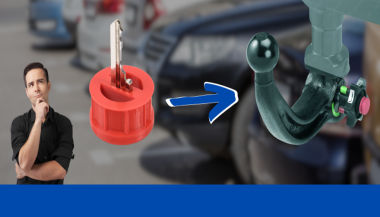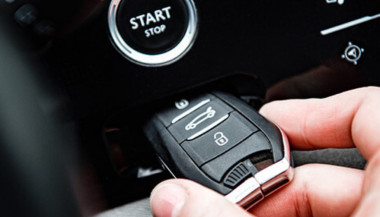Losing or encountering issues with your car key can feel like a nightmare, especially when you’re in a hurry. From unresponsive key fobs to stuck keys, these problems are more common than you might think. The good news? Most of these issues have simple, affordable fixes that you can address quickly. This guide will help you identify common car key problems and provide solutions to get you back on track without breaking the bank.
1. Key Won’t Turn in the Ignition
Why It Happens:
When your car key refuses to turn, it’s often due to a worn-out key, a damaged ignition cylinder, or a locked steering wheel.
How to Fix It:
- Check the Steering Wheel: If the wheel is locked, try gently turning the steering wheel left and right while turning the key in the ignition.
- Inspect the Key: A bent or worn-out key can cause alignment issues. Try a spare key if you have one.
- Lubricate the Ignition: Use a small amount of graphite lubricant (avoid oil-based products) to loosen the ignition cylinder.
- If All Else Fails: Consult a professional to replace the key or ignition lock.
Tip: Avoid forcing the key, as this could damage the ignition further.
2. Car Key Fob Isn’t Responding
Why It Happens:
Modern key fobs are convenient, but they rely on batteries and electronic components that can fail. A dead battery is the most common culprit.
How to Fix It:
- Replace the Battery: Open your key fob (usually with a small screwdriver) and swap out the old battery for a fresh one. Most fobs use coin-shaped batteries like CR2032.
- Reprogram the Key Fob: If changing the battery doesn’t work, your fob may need reprogramming. Follow your car manual’s instructions or consult a professional locksmith.
- Check for Damage: Inspect the buttons and internal components for signs of wear or moisture.
Tip: Always keep a spare battery on hand to avoid unexpected key fob failures.
3. Key Stuck in the Ignition
Why It Happens:
This issue often stems from a locked transmission, dirt in the ignition, or a worn-out key that doesn’t align properly.
How to Fix It:
- Ensure the Car Is in Park: For automatic cars, check that the gear shifter is fully in the “Park” position.
- Clean the Ignition: Use compressed air to remove dirt or debris from the keyhole.
- Jiggle the Key: Gently wiggle the key while applying light pressure to help free it.
- Inspect for Damage: If the key is bent, avoid forcing it. A professional can help safely extract it.
Tip: If the problem persists, you may need to replace the ignition cylinder or key to prevent further damage.
4. Worn or Damaged Car Key
Why It Happens:
Over time, constant use can wear down the grooves on your key, making it difficult to start the car or open the doors.
How to Fix It:
- Get a Duplicate Key: If your key is showing wear, have a duplicate made while it still works.
- Replace the Key: A locksmith can create a new key based on your car’s lock or key code.
- Upgrade to a Modern Key: If you’re using an older mechanical key, consider upgrading to a transponder key or key fob for added convenience and security.
Tip: Don’t wait until your key stops working entirely. Replacing a worn key early can save you time and stress.
5. Key Fob Signal Interference
Why It Happens:
Sometimes, your car key fob may not respond due to signal interference from nearby electronics or a faulty antenna.
How to Fix It:
- Move Away from Interference: Check for other devices nearby, such as Wi-Fi routers or radios, which may disrupt the signal.
- Inspect the Fob: Ensure the key fob’s battery is working and the buttons are functional.
- Reset the Key Fob: Follow your car manual’s instructions to reset or resynchronize the fob.
- Test the Car’s Receiver: If the problem persists, there may be an issue with your car’s signal receiver.
Tip: Parking in a location free from electronic interference can help diagnose if this is the root cause.
Preventing Car Key Problems: Simple Tips
Taking care of your car key now can save you from bigger headaches later. Here are some quick maintenance tips:
- Keep Keys Clean: Avoid exposing keys to water, dirt, or chemicals.
- Store Spare Keys Safely: Always have a backup key in a secure and accessible place.
- Replace Batteries Regularly: Change key fob batteries annually to prevent unexpected failures.
- Inspect Your Keys: If you notice wear, cracks, or loose buttons, address the issue early.
Why Addressing Car Key Problems Early Saves You Money
Ignoring small car key problems can lead to more expensive repairs down the road. For example:
- A damaged ignition can cost far more to replace than addressing a stuck key early.
- Reprogramming a lost or broken key fob is more costly than simply replacing a battery.
- Getting a duplicate key before the original breaks ensures you’re not left stranded.
By staying proactive, you can keep your car keys functioning smoothly without spending a fortune.

 (1)_1736344531.jpg)

_1743422904.jpg)
_1745478488.jpg)
